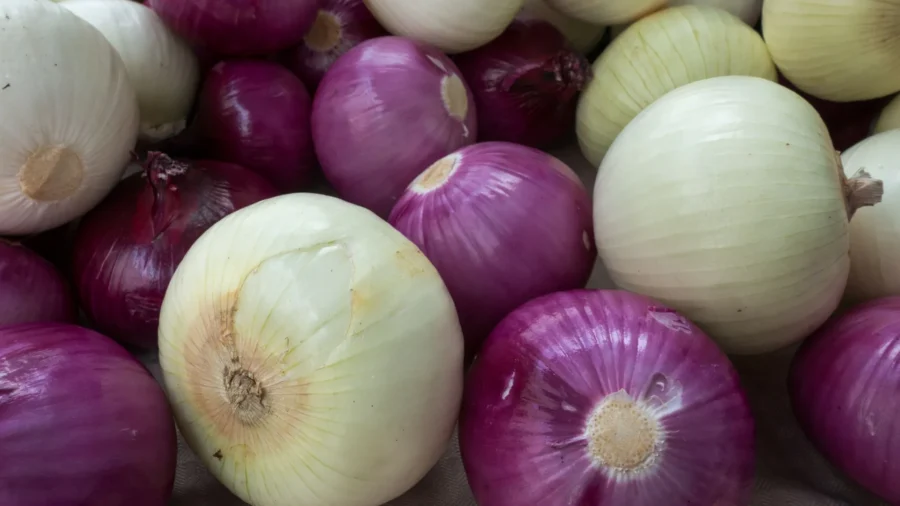Gills Onions in Oxnard, California has voluntarily issued a recall for its fresh pre-cut onions products including diced yellow onions, red onions, and mirepoix, due to possible Salmonella contamination, the U.S. Food and Drug Administration (FDA) reports.
The recalled diced onion products, which have surpassed their August 2023 use-by dates, are no longer available in stores.
The products were distributed to various stores and restaurants throughout the United States and Canada. Stater Bros., Bashas’ markets, and Smart & Final stores in Arizona and California were among the retail sites listed.
The FDA advises individuals in possession of expired or recalled products to not consume them but throw them away.
In the meantime, the Centers for Disease Control and Prevention (CDC) urges food service establishments to refrain from selling or serving Gills Onions products that have been recalled or foods containing recalled onion products. Employees must also ensure proper sanitization of items and surfaces that may have come into contact with the recalled products.
The announcement came after an outbreak of salmonella poisoning linked to bagged, pre-cut onions that has sickened at least 73 people in 22 states, including 15 who were hospitalized, according to the CDC.
U.S. health officials are conducting an investigation into the outbreak to ascertain the origin and potential links between Salmonella infection and other products.
Salmonella Infection
Salmonella is a harmful bacteria responsible for diarrhoeal diseases in infants, the elderly, and individuals with compromised immune systems.
The infection of Salmonella commonly manifests in fever higher than 102°F, diarrhea, nausea, vomiting, and abdominal pain for healthy individuals. The infected might also experience signs of dehydration, such as lack of urine production, dry mouth and throat, and dizzy spells when standing.
In more severe cases, Salmonella infection can cause the organism to enter the bloodstream, resulting in more severe symptoms like arterial infections, endocarditis, and arthritis.
The onset of symptoms typically takes place within a time frame of 12 to 72 hours following the ingestion of contaminated food and usually subsides within four to seven days.
The CDC suggests that individuals who exhibit symptoms of Salmonella infection should reach out to their healthcare providers for medical attention.
Salmonella Outbreak Related to Onions
Onions were responsible for several Salmonella outbreaks of poisoning that occurred in the past.
The FDA’s report in 2021 shed light on their investigation of the Salmonella Newport outbreak, which resulted in more than 1,600 reported illnesses in the United States and Canada from June to October 2020.
Investigators discovered a direct association between Salmonella poisoning and the consumption of whole red onions provided by Thomson International Inc.
Investigators noted potential contamination sources in the red onion growing fields, including irrigation water, sheep grazing, and signs of animal intrusion.
Likewise, although the investigation did not coincide with the ongoing packing activities, evidence from visual observations and records review indicated the existence of foodborne pathogen risks in the packing house. This included signs of animals entering the premises and insufficient cleaning of food contact surfaces.

CDC Safety Recommendations
To mitigate the risk of a Salmonella infection, the CDC suggests regular handwashing and surface sanitation, along with the sanitization of fruits and vegetables prior to eating, cutting, or peeling.
When storing food, make sure to keep raw meat, poultry, and seafood separate from fresh fruit, salads, and deli meats to prevent cross-contamination.
When cooking, choose an internal temperature that is effective in eliminating pathogens.
From The Epoch Times

